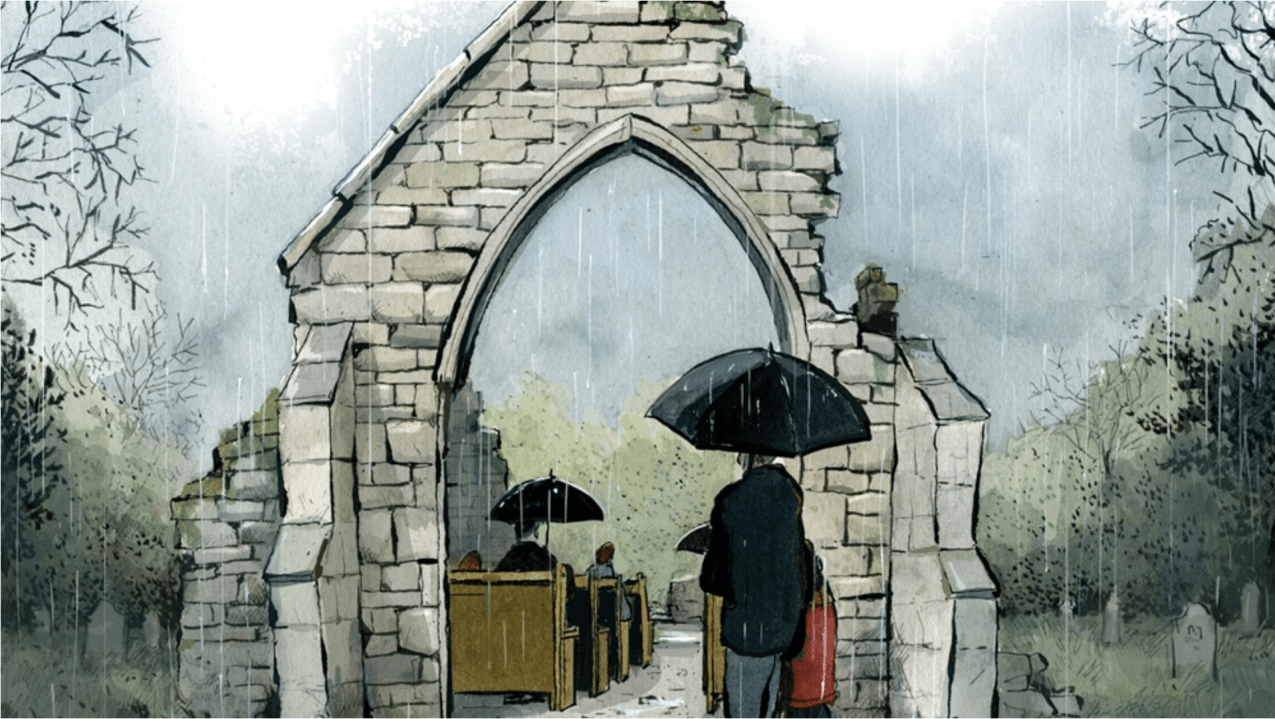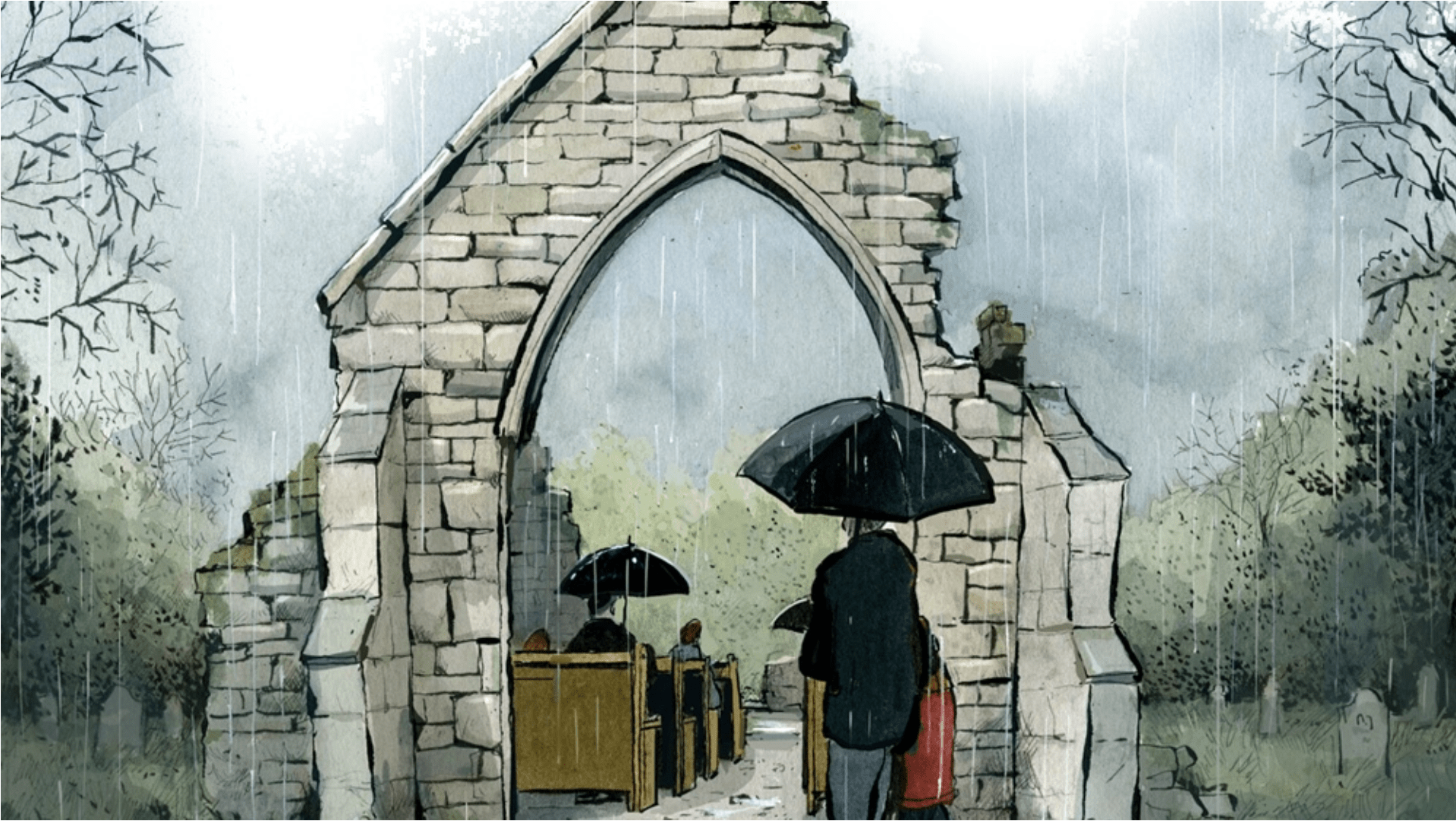Hungary is something of a bête noire in the international community. Viktor Orban and his government have had much-deserved condemnation over their treatment of certain minority groups, as well as undermining judicial independence and what many see as an attack on the freedom of the media.
But Orban’s administration has been getting something right, and it would be a shame if the country’s pariah status means its greatest achievement goes overlooked. Hungary has become a marriage super-power.
According to the Marriage Foundation, which rightly promotes legal matrimony as the bedrock of a healthy society, Hungary’s marriage rate has exploded over the last decade, rising by 92 per cent. The country moved from 28th in Europe to number one in the Foundation’s league table. In the same period marriage rates in the UK fell by 16 per cent between 2010 and 2019, and our ranking has slipped from 17th in Europe to a dismal 25th.
Since 2010, Hungary has implemented policies to encourage more children to be born, and in particular to be born to married parents, including through offering government-backed subsidies to married couples. For example, newlyweds can access significant government loans while also receiving a small reduction in income tax for the first few years after their wedding. But it is more than just money, Hungarian politicians are unashamed about promoting the cultural value of marriage and the benefits it brings.
The results speak for themselves. According to the OECD, in Hungary births outside of marriage have fallen from 41 per cent in 2010 to 30 per cent in 2021. Marriage rates almost doubled and the divorce rate has plunged by 37 per cent over the same period. I am not, I stress, suggesting that we adopt these specific policies like for like. But Hungary’s example unquestionably sheds light on the powerful effect of financial incentives and political support for marriage.
Hungary’s policies send a message from the government that marriage matters and is valued, which helps create a culture that encourages people to make that commitment. In Britain, there are no significant tax benefits to being married. Indeed, Britain discourages lifelong commitment through financial penalties. During the 14 years that I have worked at the Centre for Social Justice, which works to turn around the lives of those struggling the most, I have become convinced that the family dysfunction and resulting chronic instability which so many poorer children experience represents nothing less than a national scandal. It is also a major driver of inequality in our country.
If you ask someone how they ended up in a desperate poverty-stricken situation – be it addicted to drugs, long-term unemployed, sleeping rough or leading a life of crime – they almost always begin their story with trauma in early life. Scratch the surface, and what you invariably find is family breakdown.
Government figures have long shown that children in families that break apart are more than twice as likely to experience poverty as those whose families stay together. And recent research has shown that experience of family breakdown means you are roughly twice as likely to experience homelessness, to have been in trouble with the police or to have spent time in prison.
The UK is a conspicuous international outlier on family breakdown and yet British politicians remain strangely mute on this unfolding crisis.
Why? Because talking about family in the past has quickly turned into a kind of moral hectoring which frankly helps no one and politicians are fearful that championing marriage is an implicit criticism of other family structures. We should be clear, then: nobody is blaming or stigmatising anybody for the breakdown of a family. Sometimes it is better for all involved, and that includes the children, when parents separate.
Nor is anybody criticising lone parents for their heroic efforts in raising children by themselves. As someone whose father was raised by a wonderful single father, I am only too aware of how well many parents are able to do this, but also what a hard job it can be. However, we have a major problem, particularly in poorer communities where family breakdown is now increasingly the norm. Half of all children are no longer living with both their parents by the time they sit their GCSEs. For children in disadvantaged communities, that figure is true by the time they start primary school.
Despite the gallant efforts of so many single mothers (and it usually is mothers who are left to raise the children), the reality is the role of fathers in children’s lives really does matter. All the more so when you are growing up in a community where drugs are prevalent, schools are failing, and employment opportunities are lacking. Speak to any local charity which works with children in gangs, to understand what a crucial part fathers play – a point David Lammy, the shadow Foreign Secretary, has made forcefully in the past. Recent research shows that married parents are twice as likely to stay together as cohabiting ones. By the time they turn five, more than half of children will have experienced their parents’ separation, among five-year olds with married parents, this falls to 15 per cent.
It is no surprise really. Going through the thought process as you embark on getting married or forming a civil partnership, where you are prepared to make a life-long commitment with that individual, which is recognised in law, and so often made in front of those you love – the psychology of this process does of course have an impact on behaviour.
Marriage has become a secret weapon of the privileged. In Britain, more than eight in ten of the wealthiest marry. Less than half of the poorest do. The decline of marriage is acting as a major driver of inequality in this country and yet politicians and commentators who profess to care so much about social injustice cannot bring themselves to mention the ‘M’ word.
The truth is that marriage can also be a defender against some of the worst abuses that disadvantaged children can be exposed to. A statistic commonly quoted is that two thirds of sexual abuse takes place in the family home. What is less often said is that there is strong international evidence to show that children are significantly more likely to be abused both sexually and physically when they are living in a household with different partners and boyfriends moving in and out of that home. These same studies show the best barrier to abuse is for a child to live with its biological married parents.
Some take the libertarian view that marriage should not be an issue of government concern. Others see it as an outdated institution. Friedrich Engels saw the main function of family and marriage as protecting the evils of capitalism, reinforcing social inequalities and enabling the suppression of women – a product of the patriarchy you might say. The ripple effect of this upside-down belief is still being felt today. My hunch is Engels knew strong families to be a successful barrier to a revolutionary socialist state, and that this was also why marriage got his back up.
But there are other countries, not just Hungary, where the trend is being reversed. Take Germany, widely seen as one of Europe’s more socially progressive nations, which has nonetheless embedded family incentives into the tax system, meaning that German couples can opt-in to pool their resources in the way that best suits their family.
For those who worry introducing this here would be a step backwards for women in the workforce, Germany’s female labour market participation rate is 73 per cent, just ahead of the UK’s 72 per cent. German families are also extraordinarily stable with 84 per cent of German children still living with both parents at age 18.
One of the only countries in Europe that can top this is Finland at 85 per cent and Finland is consistently ranked as one of the best countries in the world for children. But few make the connection between these outcomes and the stability of Finnish families. While this year for the first time more children in the UK were born to unmarried mothers than married, in Finland married first time mothers remain the norm. The truth is it is Britain, not Hungary, that is fast becoming a European outlier as far as promoting marriage is concerned, and it is our children who are left to pay the price.







Comments